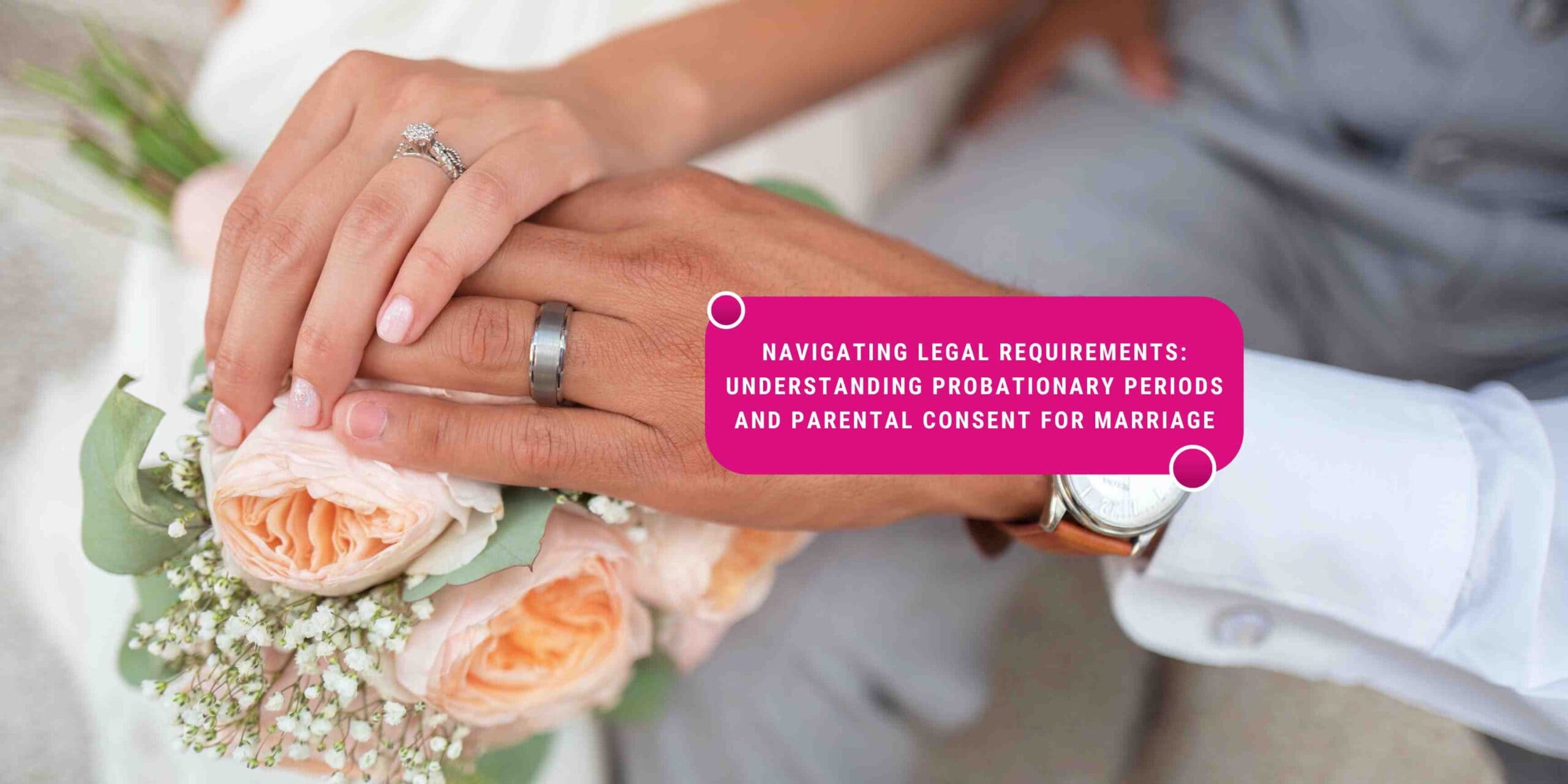Parental Consent for Marriage in the Philippines
All persons under the age of twenty-one must have parental consent to marry. In order to contract marriage, a male must be at least 22 years old and a female 18 years old. This is now raised to 21 for both sexes. Under the Child and Youth Welfare Code, the parents of a minor have the authority to exercise parental authority over their child when he or she contracts marriage even if the parents are below the age of 21. Failure to obtain parental consent makes a marriage voidable. However, the marriage cannot be annulled if it has already been ratified upon the ages of the parties, for the marriage is already valid. In another respect, the consent of the parents, although required, is not as important as the fact that the party has reached the age of 21. In case a parent still unreasonably withholds consent, upon petition of the parties, the court may give consent in the absence of the parent. But in the recent case of Zabat Vs Mendoza, it was held that the marriage of a male 18 and female 19 was void for the lack of parental consent, even if the wife was already past 18, which was the old requirement of the female age for marriage. It was a clear change in the law beneficial to the woman coming from its evolution in the common law requirements of marriage. Our lawyers are ready to help you with cases about parental consent for marriage Philippines.
Probationary Periods and Their Significance
A probationary period in the case of a marriage is defined as a period of time at the commencement of the marriage which either party may terminate the contract of marriage without any liability. This may either be expressly provided by an agreement of the parties or may be implied by the terms of the agreement. Such a provision of a probationary period must not be confused with the availability of an annulment to a party which can already be ended on other grounds such as non-consummation or incapacity of a party. The definition provides two types of probation, an express probation through an agreement of the parties, in this case it is an agreement in which the parties must stipulate that they are married under probation for this to be valid. The more common type of implied probation is where the existence of a probationary period will be assumed due to the terms and conditions of the marriage being of a short and unsure nature. An example of this would be the marriage of a man who is looking to dodge a deportation order which may have arisen as a result of the end of a student visa, in this case his uncertainty of how long he may be able to remain in the country would imply a probationary period.
Understanding the Legal Requirements for Parental Consent
Some states require court approval in addition to the parents’ consent. The state’s court clerk or the court clerk’s office is a good resource for determining whether marriage requires court approval and the exact procedures. In some areas court approval may not be limited to specific age of the contracting parties, but a general determination of whether the marriage is in the best interest of the minor involved. This leaves a wide amount of interpretation and case law and how a marriage contract can be voidable or void as a contract for minors at a future date. Finally, some family code statutes may make void any marriage contracts by minors – especially those now common law marriage constitutes as a voidable marriage at a later date – it is important to research whether marriage is voidable or truly void as the rights and obligations of the parties involved differ in those cases.
Understanding what constitutes as legal parental consent is important. You can find laws regarding parental consent in its state’s family code, this might be different from the age of majority and other laws regarding the age at which a person can enter into a contract. This can be especially confusing in states that allow pregnant minors or minors who have already had a child to get married. Many states do not specify a minimum age at which a parent’s consent is no longer required. In any case where parental consent is required, it is important to remember that obtaining consent from the party or parties with legal custody of the minor is also necessary.
Exploring the Implications of Probationary Periods
Any approval and exemption would not affect the legal capacity of the minor to obtain legal aid. An option of this nature would involve the setting up of a system for legal aid to enable minors to obtain representation for the purpose of obtaining an exemption. This is currently very difficult under the existing legal aid system. Changes to legal aid would also be necessary. This option would ideally have a restricting effect, without legal capacity and legal aid, the couple would not be able to marry.
Approval would be subject to a probationary period in which the couple would have to satisfy the judge that their circumstances were consistent with those stated when the exemption was granted, and that it was still in the best interests of the parties and any children. Failing this, the marriage would be voidable and it would be necessary to show that the change in circumstances was due to a material change in the prospects of the couple and not to the lapsing of time. This would ensure that the option of annulling the marriage would still be available to couples whose marriages were not in fact in their best interests.
This article suggests that one possibility for setting an age restriction would be to prevent the marriage of those who are below a certain age unless they had obtained an exemption from a juvenile court judge. This would require the judge to be satisfied that the minor fully understood the implications of the marriage, that he or she was capable of providing for the family, and that the marriage would be in the best interests of the parties and any children born or to be born of the marriage.
Navigating the Process: Ensuring Compliance and Understanding
The process of petitioning for the marriage of a minor is far more complicated than the statute implies. Practitioners must take care to understand the process to avoid legal pitfalls and protect the interests of their clients. With respect to proving that the minor has parental consent, “The attorney shall present a certificate signed by a licensed physician stating that the female to be married is pregnant or has given birth” or alternatively, a finding by the court that the marriage is in the best interests of the minor or several alternative specified types of proof. The attorney must be prepared to see this process through an often complex and confusing evidentiary hearing. If the marriage petition is approved, under §765.31(1) the attorney can expect that without filing a separate petition for a minor guardianship, the parents still retain the powers and responsibilities regarding the child including the power to consent to the marriage. This is because marriage is not an automatic legal emancipation. In the event that the minor subsequently encounters legal or other problems related to the marriage, it is possible that an order consenting to the marriage could cause problems in terms of revocation or petitioning for a modification of custody and family court support orders under Chapters 767 and 69. The procedural and substantive legal requirements related to the ability of a minor to contract a valid marriage have a significant impact upon family law practitioners who may represent minors, parents or guardians ad litems.



